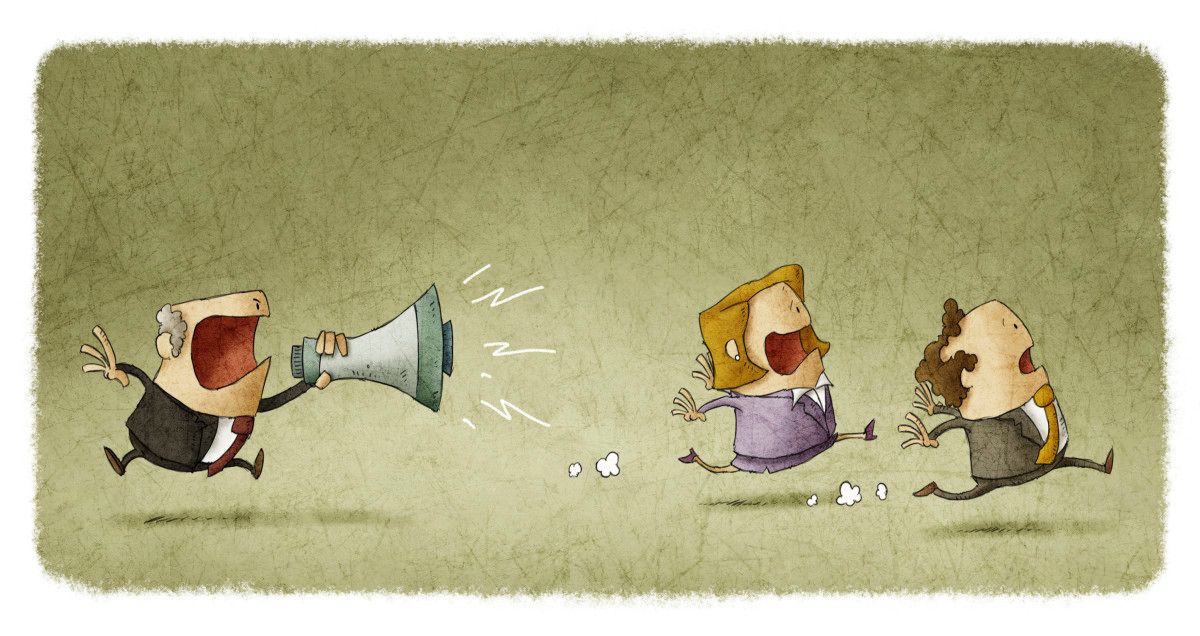Stop Being Negative: Become an Anti-Critic
It’s an unfortunate fact that the world is full of critics who feel that it’s their place to put others down left and right, based on their ideas, actions, and even personal beliefs. It seems that being negative is the order of the day, based on its prevalence among TV pundits, editorials, and anony

It's an unfortunate fact that the world is full of critics who feel that it's their place to put others down left and right, based on their ideas, actions, and even personal beliefs. It seems that being negative is the order of the day, based on its prevalence among TV pundits, editorials, and anonymous internet comments. Politicians criticize their opponents instead of working together to find solutions, bloggers and so-called experts criticize the way we raise our children in often contradictory ways, bosses criticize your work performance and ideas, the list goes on and on.
Unsurprisingly, all this negativity can rub off on us, even if we have the best intentions. I know that even I sometimes find myself unthinkingly criticizing something before I even know all the details.
It's important to step back and try to stop this cycle, because it's simply not productive. Instead of joining everyone else by being automatically critical of everyone who has an idea that differs from yours, become an anti-critic. An anti-critic is someone who collaborates instead of always coming up with a reason why the other person is wrong, and works with others to constantly improve ideas and practices rather than simply tearing them down.
We all need to stop being so critical and negative — and instead become an anti-critic.
Phil McKinney
The first step is changing how you think about the word “criticism” itself.
Understanding “Criticism” Versus “Verbal Attack”
The word “criticism” generally has a negative connotation and is equated with an attack. For instance, when a co-worker criticizes your ideas on a project, it's easy to get defensive instead of trying to develop better ideas to solve the problem, because it's easy to perceive criticism as a rebuke.
But the truth is, criticism is not inherently negative. To criticize, in its most basic form, simply means to examine closely. So an important step towards becoming an anti-critic is changing the connotation of the term “criticism” within your own mind.
When you think of “criticism,” try aligning it with words like “analysis” and “evaluation.” Changing your own definition can make you more open to receiving criticism in a constructive way, which is an important step toward becoming a good collaborator. The next time someone on your team criticizes something you came up with or are working on, try to look past the negativity to see any useful advice at the core of the critique. If you can do that, and answer with constructive ideas, you've taken a meaningful step toward breaking the cycle of unconstructive criticism within your organization.
How to Criticize And Not Be Negative
Keeping with the same work example above, we're going to flip the script and look at criticism from the perspective of the criticizer. If you're the one criticizing a co-worker's ideas, then it's time for you to consider how you are offering your criticism and whether or not it's constructive. For this step, you also need to change your definition of criticism and start thinking of yourself not as a critic but as an evaluator.
To that end, always start with the positive. Look at the core of the idea the person is presenting and figure out what works about it – and say that. Then go onto what could be improved. It's okay to mention flaws or potential issues you see, as long as you also offer ideas for fixing them. Criticism without a fix isn't helpful, and only perpetuates nonconstructive negativity and resentment. Always focus on improvement – building on ideas rather than tearing them down.
None of this means you should be dishonest about your evaluation of an idea. It means your honesty should, for the sake of the project, be offered with the aim of collaborating, not criticizing.
From Criticism to Collaboration
An anti-critic is, above all else, a contributor. Instead of someone who sits on the side throwing rocks, an anti-critic gets in the middle of the situation by figuring out how all parties can work together to come up with a better solution than the one that currently exists.
Criticism (or evaluation, or analysis) is important, but it needs to be constructive and followed by joining in and collaborating. To do this effectively, it's a good practice to first ask to offer your opinion. If you usually just automatically jump in by offering your opinion, try to cut that habit. To truly collaborate, you must be open to others' feelings and ideas. They may not want or need your expertise at the moment, or they may feel that you are taking charge when you automatically offer your take. The key to collaboration is that nobody is necessarily “in charge.” Instead, you are multiple people with multiple areas of expertise and experience that need to be shared, discussed, and analyzed in order to come up with a solution that will solve the problem and move the project forward.
The world has plenty of critics, and you don't need to add to that negativity. Every team member has the ability, and the responsibility, to make the working environment one that constantly moves forward rather than getting mired in what's not working. Modeling what it means to be an anti-critic on your team will lead to more collaboration and less resentment and conflict. Take the time to really listen to others when collaborating, and always follow up a critique with ideas for how to move forward.
Have some examples of good and bad criticism? I would love to hear them .. contact me.




